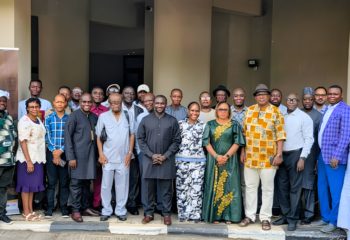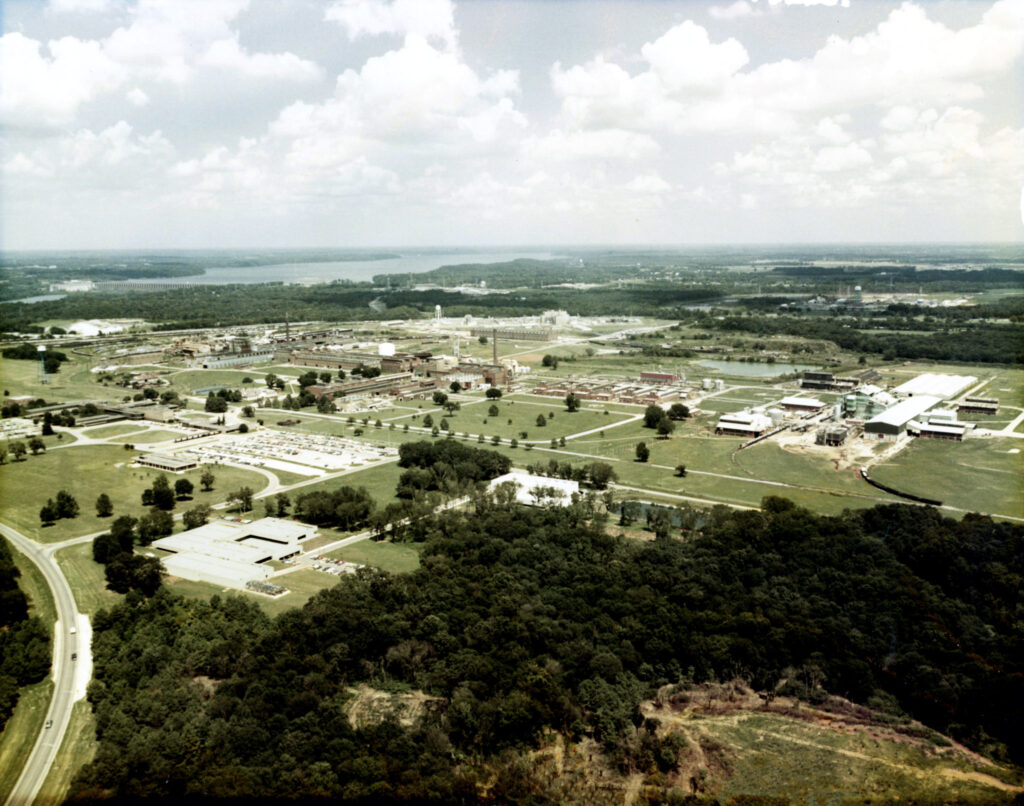
For many Americans, the term “international organization” often evokes images of distant offices and remote, isolated projects. But nestled in the heart of the Tennessee Valley, the International Fertilizer Development Center (IFDC) stands as a powerful reminder that global change often begins at home. This IFDC Day, the organization proudly celebrates its local beginnings and ongoing impact in Alabama and across the U.S.
Born from Innovation in the Tennessee Valley
IFDC’s story begins with the Tennessee Valley Authority’s National Fertilizer Development Center (NFDC), an institution headquartered in Muscle Shoals, Alabama, that laid the foundation for groundbreaking agricultural research. In fact, more than 70% of the world’s fertilizer technologies trace their roots to this very soil.
“While our mission spans continents, our roots are firmly planted here in the Shoals. IFDC’s innovations may feed millions around the world, but they also generate jobs, support local businesses, and strengthen the economy right here in our own backyard.”
Henk van Duijn, IFDC President and CEO
Founded in 1974 as an extension of NFDC’s legacy, IFDC has become a world leader in developing sustainable solutions for soil health and plant nutrition. Today, the organization continues its legacy of advancing sustainable agriculture from Muscle Shoals, helping local growers address challenges like soil fertility and food security.
Big Impact, Right at Home
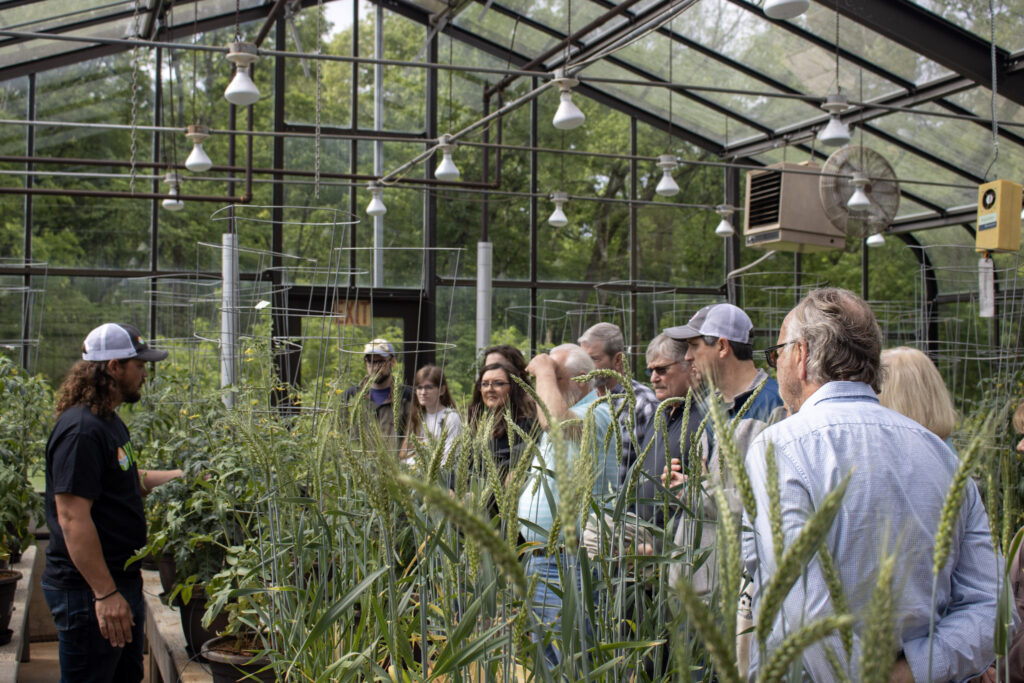
While IFDC’s reach is undeniably global, its significant local impact is often overlooked.
IFDC President and CEO Henk van Duijn shared, “While our mission spans continents, our roots are firmly planted here in the Shoals. IFDC’s innovations may feed millions around the world, but they also generate jobs, support local businesses, and strengthen the economy right here in our own backyard.”
A 2014 economic study attributed $21.5 million in local economic impact to IFDC, revealing that for every dollar spent by the organization, $2.40 is generated in the local economy. Visitors alone contribute over $517,000 annually to surrounding businesses. From hotel stays and restaurant meals to collaborative research and talent development, IFDC is, as van Duijn remarked, quietly fueling economic activity in its own backyard.
IFDC’s work is also critical for American food security, as its research revitalizes soil health and agricultural productivity. Over the past decade, IFDC has invested over $60 million in fertilizer development in the Shoals area, reinforcing the organization’s role as a catalyst for innovation, economic growth, and sustainable agriculture.
In regions such as Alabama’s Black Belt, IFDC is helping farmers at home improve soil health, crop yields, and economic outcomes. Once a prosperous agricultural region, Alabama’s Black Belt now faces economic challenges and poor soil conditions that hinder productivity.
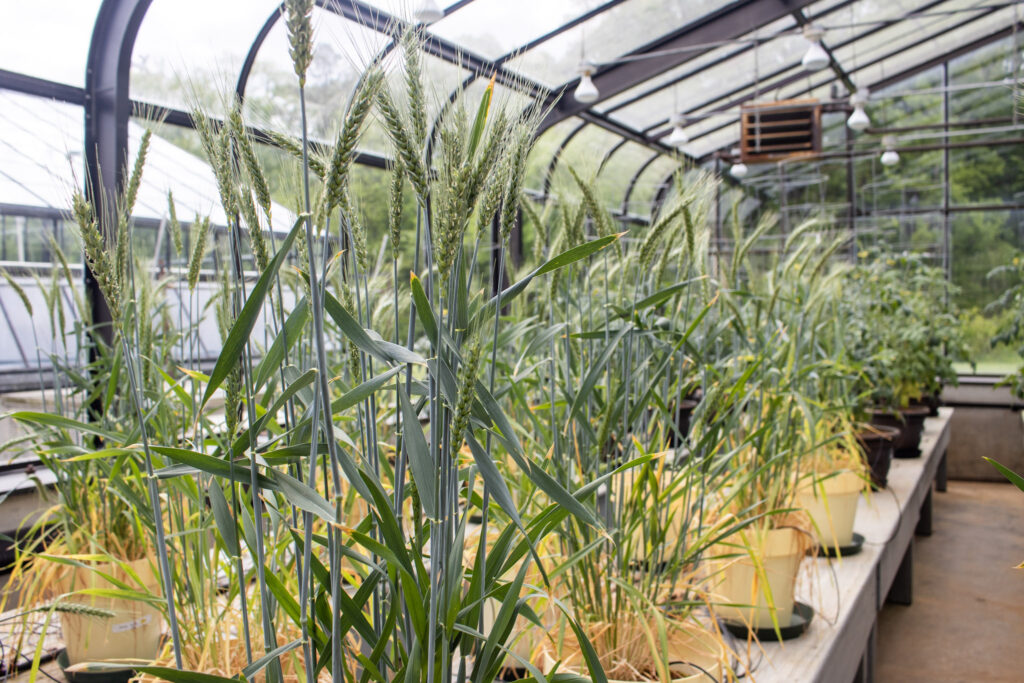
IFDC collaborates with local partners, including farmers, universities, and agribusinesses, to develop and test innovative fertilizer technologies through field trials tailored to regional soil conditions. These efforts help address local agricultural challenges while reducing nutrient runoff and promoting sustainability.
Science in Service of America’s Fields
The link between IFDC’s work and American prosperity is clear. With $9 billion in fertilizer imports and $5.5 billion in fertilizer exports, the United States is the third-largest global player in the fertilizer trade. IFDC’s research contributes to national economic stability by reducing dependence on imports and strengthening domestic fertilizer innovation. By promoting decentralized production models that utilize local resources – including recycled waste, organic amendments, and regional minerals – IFDC helps make fertilizer production more resilient and self-sufficient.
Additionally, soil and fertilizers play a crucial role in feeding America: approximately 95% of food originates from the soil, and over 50% of that food is directly attributed to fertilizer use. IFDC’s cutting-edge work ensures that these vital resources are managed more efficiently, sustainably, and affordably, supporting food security and agricultural productivity across the country.
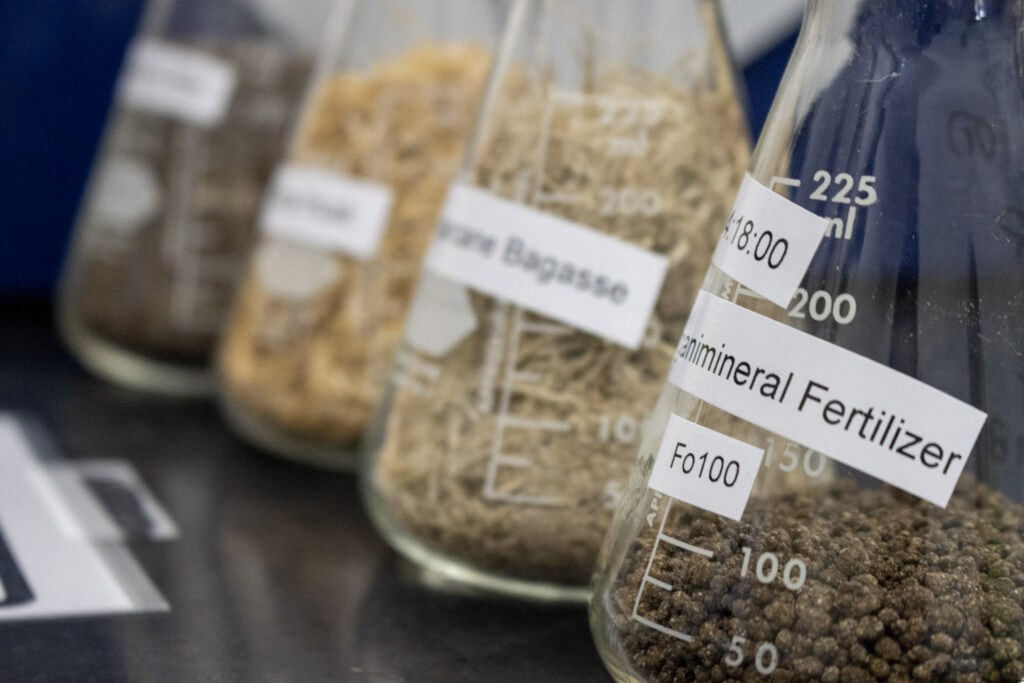
In fact, advances in fertilizer efficiency, driven in part by IFDC’s research, have increased nitrogen use efficiency in the United States by at least 35% over the past 25 years, enabling higher yields without increased application. This improvement is particularly important as fertilizer prices have risen sharply in recent years, accounting for up to 45% of the total operating cost of agriculture during crises such as the Russia-Ukraine war. Through its innovation, IFDC plays a vital role in protecting both the economic viability of American farmers and the long-term food security of the nation.
A Hub of Collaboration and Discovery
Beyond economics, IFDC is also a nexus for academic and scientific partnerships. With 39 university collaborators and 25 research partners, IFDC’s research labs and pilot plant initiatives are generating breakthrough innovations that fuel American science, industry, and education.
For example, IFDC’s development of controlled- and slow-release fertilizers – tailored through research in its pilot plant, lab, and greenhouse facilities – has significantly reduced nutrient runoff into waterways, helping combat harmful algal blooms in Florida, Ohio, Texas, Mississippi, and Louisiana. These advanced fertilizers improve soil and crop productivity while protecting aquatic ecosystems and drinking water sources from contamination, offering a sustainable alternative to traditional fertilizer use that increases crop yields, reduces environmental impact, promotes decentralized production, and contributes to food security.
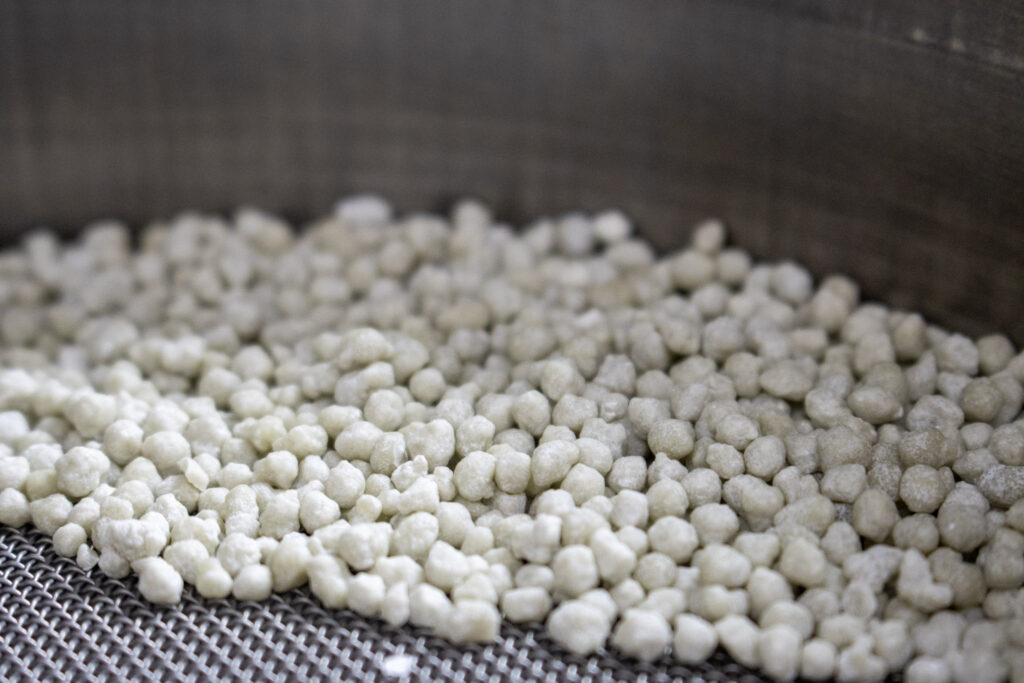
IFDC has also played a key role in accelerating the development of next-generation fertilizers that could maintain or increase crop yields while reducing negative impacts on air, land, and water. Through national partnerships and innovation challenges, IFDC contributed to the identification and evaluation of enhanced efficiency fertilizers designed to reduce nutrient losses.
With its unique expertise in translational research, IFDC helps bridge the gap between technological innovation and real-world application, testing promising fertilizer products under laboratory and greenhouse conditions. This work on next-generation fertilizers has been critical to ensuring effective fertilizer technologies will support long-term soil health, food security, and economic resilience – starting in Alabama and extending across the U.S.
In addition to its research breakthroughs, IFDC is actively collaborating with the public sector, start-ups, academia, and leading private sector companies across Alabama and the nation to expand its innovation ecosystem. These partnerships represent IFDC’s work to establish a U.S. Fertilizer and Soil Health Innovation Center, with locations planned for Muscle Shoals and Dothan, Alabama.
This Center will serve as a dynamic hub for developing and scaling next-generation fertilizer technologies that support sustainable soil health and environmental stewardship. By equipping farmers, agribusinesses, and other agriculture stakeholders with cutting-edge tools and knowledge, the Center will aim to enhance productivity, restore soil vitality, and drive the growth of a more resilient agricultural economy.
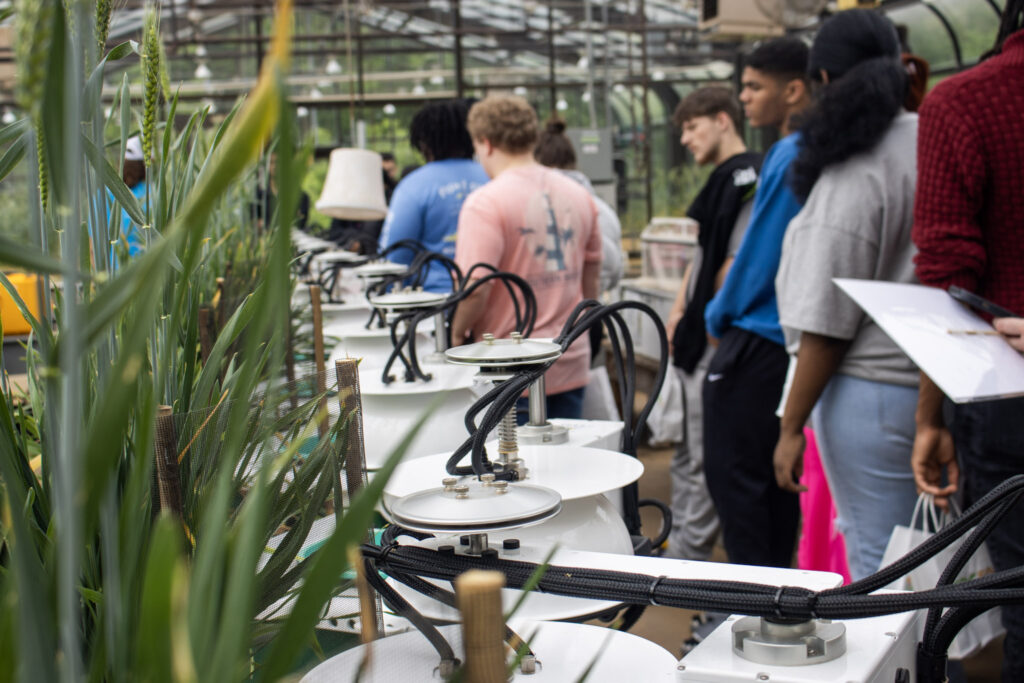
From Local to Global – and Back Again
Marking another IFDC Day, the organization celebrates a story that starts—and stays—rooted in the Tennessee Valley. What began here in Muscle Shoals has not only shaped global agriculture but also contributed to the strength and resilience of our local economy. From job creation to scientific innovation, IFDC’s impact comes full circle, initiating local progress and remaining firmly grounded in the community that gave it life.
Van Duijn concluded, “We are proud to be a global organization with a deep and lasting local impact. Building on this legacy, our vision is to sink our roots deeper into soil health innovation, developing and scaling the sustainable solutions and climate-adaptive technologies needed to research, develop, and transfer nutrient use efficiency and soil health technologies.”
Whether fueling the local economy, supporting American agriculture, or feeding families across continents, IFDC proves that being international does not mean being distant. In fact, some of the most impactful agricultural solutions were born just down the road.

